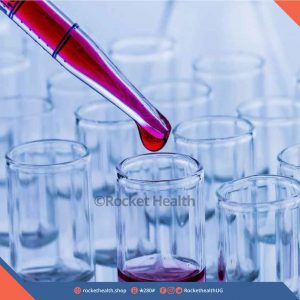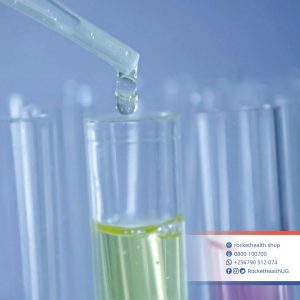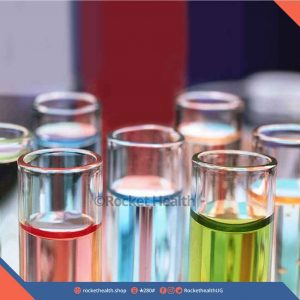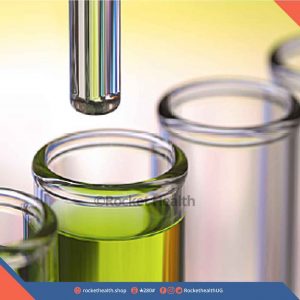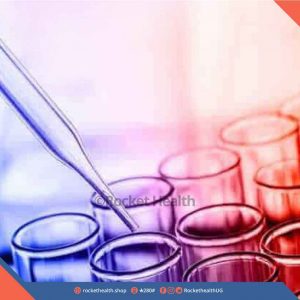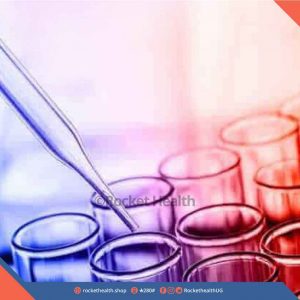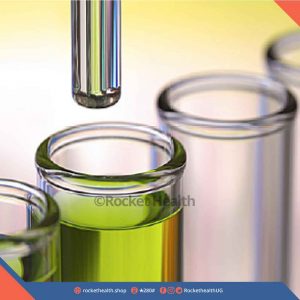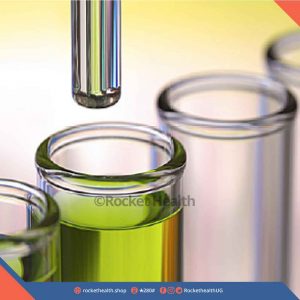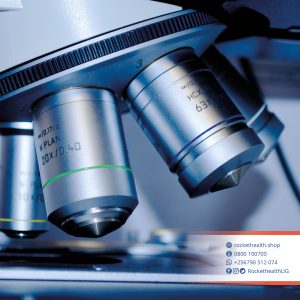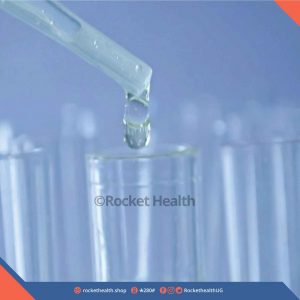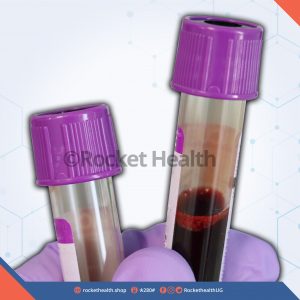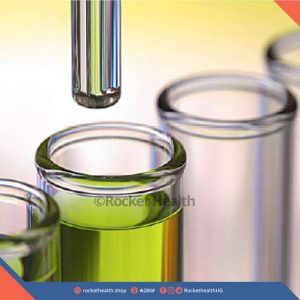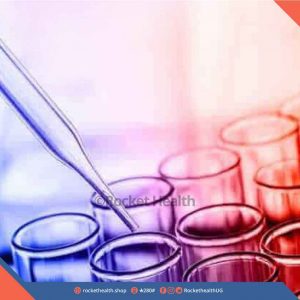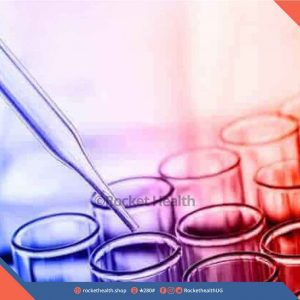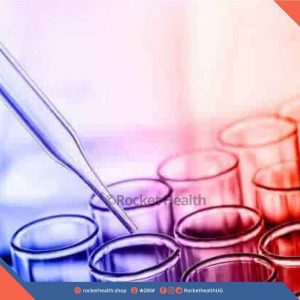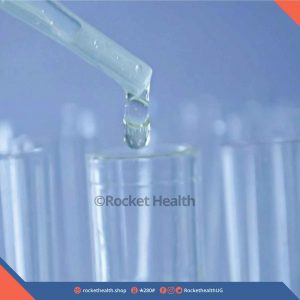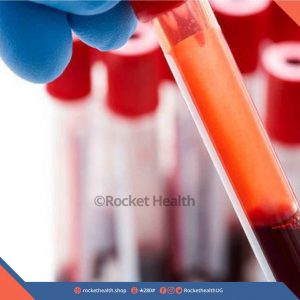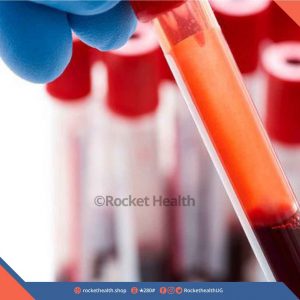No products in the cart.
-
Vitamin B12
This test measures the amount of vitamin B12 in the blood. The body needs this B vitamin to make blood cells and to maintain a healthy nervous system.
Blood.
Inform the doctor if you are on any medications, have any allergies or underlying medical conditions before this test. Ask your healthcare practitioner or lab for specific instructions.
The main role of vitamin D is to help regulate blood levels of calcium, phosphorus, and (to a lesser extent) magnesium. Vitamin D is vital for the growth and health of bone; without it, bones will be soft, malformed, and unable to repair themselves normally, resulting in diseases called rickets in children and osteomalacia in adults. Vitamin D comes from two sources: endogenous(D3), which is produced in the skin on exposure to sunlight, and exogenous(D4), which is ingested in foods and supplements.
60,000UGXVitamin B12
60,000UGX -
URIC ACID
This blood test is used to check for gout and also monitor people undergoing chemotherapy or radiation treatment for cancer.
Blood.
No specific patient preparation protocol required. Inform your doctor if you are on any medications or have any underlying medical conditions or allergies before undergoing this test.
Uric acid is produced by the breakdown of purines. Purines are nitrogen-containing compounds found in the cells of the body, including our DNA. If too much uric acid is produced or not enough is removed, it can accumulate in the body, causing increased levels in the blood (hyperuricemia). The presence of excess uric acid can cause gout, a condition characterized by inflammation of the joints due to the formation of uric acid crystals in the joint (synovial) fluid. Excess uric acid can also be deposited in tissues such as the kidney, leading to kidney stones or kidney failure.
30,000UGXURIC ACID
30,000UGX -
Sexually Transmitted Infection (STI) Screening(Extended)
Tests Include:
- HIV Antibody screening
- Hepatitis B screening
- Syphilis Test
- Urinalysis
- Gonorhea Antibody
- Herpes antibody (IgG, IgM)
- Hepatitis C Screening
- Chlamydia Antibody
215,000UGX -
Progesterone
This is a test used to help check for possible causes of infertility, monitor or detect a failing pregnancy as well as tracking fertility treatments.This measures progesterone levels in blood.
Blood.
None, however early morning samples are preferred and for women, the date of your last menstrual period or trimester of pregnancy should be noted.
After ovulation, a corpus luteum forms in the ovary at the site where the egg was released and begins to produce progesterone. This progesterone, supplemented by small amounts produced by the adrenal glands, stops endometrial growth and readies the uterus for the possible implantation of a fertilized egg. If fertilization does not occur, the corpus luteum degenerates, progesterone levels drop, and menstrual bleeding begins. If a fertilized egg is implanted in the uterus, the corpus luteum continues to produce progesterone, with the egg forming a trophoblast that produces human chorionic gonadotropin (hCG). After several weeks, the placenta replaces the corpus luteum as the main source of progesterone, producing relatively large amounts of the hormone throughout the rest of a normal pregnancy.While men have small amounts of progesterone in their blood, progesterone is usually not tested in men, unless specific adrenal diseases are suspected. Progesterone does not have an established role in males.
50,000UGXProgesterone
50,000UGX -
Prothrombin Time (INR)
The prothrombin time (PT) is a test that helps evaluate your body’s ability to appropriately form blood clots.
Blood.
None needed, however if you are receiving anticoagulant therapy, the blood sample should be collected before taking your daily dose.
A PT measures the number of seconds it takes for a clot to form in your sample of blood after substances (reagents) are added. The PT is often performed along with a partial thromboplastin time (PTT) and together they assess the amount and function of proteins called coagulation factors that are an important part of proper blood clot formation. For people taking warfarin, most laboratories report PT results that have been adjusted to the INR. A prolonged PT means that the blood is taking too long to form a clot, this may be caused by conditions such as liver disease, vitamin K deficiency, or a coagulation factor deficiency (e.g., factor VII deficiency).
35,000UGXProthrombin Time (INR)
35,000UGX -
Factor VIII(Antihemophilic factor A)
This test measures the activity of a blood-clotting protein known as factor VIII to find out whether you have hemophilia A or another clotting disorder.
Blood.
No specific patient preparation protocol required. Inform the doctor if you are on any medications, have any allergies or underlying medical conditions before this test.
Coagulation factors are proteins circulating in the blood that are essential for proper blood clot formation. Coagulation factor tests measure the function of or sometimes the amount of these proteins in the blood. There are nine coagulation factor proteins that can be measured clinically Factor I, II, V, VII, IX, X, XI, XIII. These factors are referred to by a name or Roman numeral or both in some cases. When one or more of these factors are produced in too small a quantity, or are not functioning correctly, they can cause excessive bleeding.
200,000UGXFactor VIII(Antihemophilic factor A)
200,000UGX -
Follicle Stimulating Hormone
This blood test measures level of Follicle Stimulating Hormone(FSH) in the blood which is responsible for fertility.
Blood.
No test preparation is needed, but early morning samples are preferred and a woman’s sample should be collected at specific times during her menstrual cycle.
FSH is made by the pituitary gland located in the brain, In women of childbearing age, FSH stimulates the growth and maturation of eggs (follicles) in the ovaries during the follicular phase of the menstrual cycle. In men, FSH stimulates the testicles to produce mature sperm and also promotes the production of androgen binding proteins. Disorders affecting the hypothalamus, pituitary, and/or the ovaries or testicles can cause the production of too much or too little FSH, resulting in a variety of conditions such as infertility, abnormal menstrual cycles, or early (precocious) or delayed puberty.
50,000UGXFollicle Stimulating Hormone
50,000UGX -
Direct bilirubin
This test is used to check for presence of liver disease or damage.
Blood.
You may need to fast (nothing but water) for four hours before the test. Inform the doctor if you are on any medications, have any allergies or underlying medical conditions before this test.
Bilirubin is an orange-yellow pigment, a waste product primarily produced by the normal breakdown of heme a component of hemoglobin, which is found in red blood cells (RBCs). A small amount (approximately 250 to 350 milligrams) of bilirubin is produced daily in a normal, healthy adult.If the bilirubin level increases in the blood, a person may appear jaundiced, with a yellowing of the skin and/or whites of the eyes. The pattern of bilirubin test results can give the health practitioner information regarding the condition that may be present ie with liver diseases such as cirrhosis or inherited problems.
20,000UGXDirect bilirubin
20,000UGX -
SPUTUM ZN-STAIN
Laboratory test performed on a sample of your sputum to help diagnose if you have TB. A culture is another kind of test that may be done to detect the presence of TB bacteria.
Blood.
No specific patient preparation protocol required.
Mycobacterium tuberculosis (the cause of tuberculosis) can be identified using a staining technique called the Zhiel-Nielsen stain. This test makes it possible to visualise the organism in the microscope by staining it basing on the properties of its cell wall.
15,000UGXSPUTUM ZN-STAIN
15,000UGX -
RHEUMATOID FACTOR
This blood test is used for the diagnosis of rheumatoid arthritis. High levels of rheumatoid factor in the blood are most often associated with autoimmune diseases, such as rheumatoid arthritis and Sjogren’s syndrome.
Blood.
No specific patient preparation protocol required. Inform your doctor if you are on any medications or have any underlying medical conditions or allergies before undergoing this test.
Rheumatoid factor (RF) is an autoantibody, an immunoglobulin M (IgM) protein that is produced by the body’s immune system. Autoantibodies attack a person’s own tissues, mistakenly identifying the tissue as “foreign.”
25,000UGXRHEUMATOID FACTOR
25,000UGX -
PERIPHERAL BLOOD FILM
This test is used to look for abnormalities in blood cells and enables diagnoses of many illnesses.
Blood.
No specific patient preparation protocol required. Inform your doctor if you are on any medications or have any underlying medical conditions or allergies before undergoing this test.
A blood film is a drop of blood spread thinly onto a glass slide that is then treated with a special stain and the blood cells on the slide are examined and evaluated.
30,000UGXPERIPHERAL BLOOD FILM
30,000UGX -
Rota Virus
The rotavirus test is a stool test used to diagnose a rotavirus infection which causes vomiting and diarrhoea especially in children.
Stool.
No specific patient preparation protocol required. Inform the doctor if you are on any medications, have any allergies or underlying medical conditions before this test.
Rotavirus is a viral organism that affects the intestines and causes vomiting and diarrhea. This infection is especially common in young children, but it can affect adults, too. A rotavirus infection causes a condition called viral gastroenteritis. Rotavirus passes easily from person to person. It can also be picked up by touching a surface contaminated by someone with rotavirus. Sharing food or drink with an infected person can also spread it. Most people don’t need treatment for rotavirus, but it’s still important to diagnose the infection and watch for signs of dehydration.
35,000UGXRota Virus
35,000UGX -
Calcium
Serum calcium is a blood test used to measure the amount of calcium in the blood to screen or monitor bone diseases or calcium regulation disorders.
Blood.
You may be instructed to stop taking certain medications, such as lithium, antacids, diuretics, and vitamin D supplements, among others, to ensure the most accurate test results.
It is essential for cell signaling and the proper functioning of muscles, nerves, and the heart. Calcium is needed for blood clotting and is crucial for the formation, density, and maintenance of bones and teeth. This test measures the amount of calcium in the blood or urine, which reflects the amount of total and ionized calcium in the body.
20,000UGXCalcium
20,000UGX -
CA 19-9 (Pancreatic Cancer)
This test measures the amount of a protein called cancer antigen 19-9 (CA 19-9) in the blood helping to monitor the progress of pancreatic cancer treatment.
Blood.
No specific patient preparation protocol required. Inform the doctor if you are on any medications, have any allergies or underlying medical conditions before this test.
Cancer antigen 19-9 (CA 19-9) is a protein that exists on the surface of certain cancer cells. CA 19-9 does not cause cancer; rather, it is shed by the tumor cells and can be detected by laboratory tests in blood and sometimes other body fluids. CA 19-9 is elevated in about 70% to 95% of people with advanced pancreatic cancer. However, CA 19-9 may also be elevated in other cancers, conditions, and diseases such as: gallbladder and bile duct cancers (cholangiocarcinoma), colorectal cancer, gastric cancers, ovarian cancer, lung cancer, liver cancer, bile duct obstruction (e.g., gallstones), pancreatitis, cystic fibrosis, thyroid disease, and liver disease. Small amounts of CA 19-9 are present in the blood of healthy people. Since CA 19-9 is not specific for pancreatic cancer, it cannot be used by itself for screening or diagnosis.
75,000UGXCA 19-9 (Pancreatic Cancer)
75,000UGX -
CA 15-3 (Breast Cancer)
This test measures Cancer antigen 15-3 in the blood. (CA 15-3) is a protein that is produced by normal breast cells but in many people with cancerous breast tumors, there is an increased production.
Blood.
No specific patient preparation protocol required. Inform the doctor if you are on any medications, have any allergies or underlying medical conditions before this test.
Cancer antigen 15-3 (CA 15-3) is a normal product of breast cells. Concentrations of CA 15-3 in the blood are often increased in breast cancer. CA 15-3 does not cause cancer; rather, it is a protein that is shed by the tumour cells, making it useful as a marker to follow the course of the cancer. CA 15-3 is rarely elevated in women with localised breast cancer but is increased in about 75% of those with breast cancer that has metastasised (spread to other organs). CA 15-3 also may be elevated in healthy people and in individuals with other cancers, or diseases, such as bowel cancer, lung cancer, cirrhosis, hepatitis, and benign breast disease.
75,000UGXCA 15-3 (Breast Cancer)
75,000UGX -
Activated Partial Thromboplastin Test (PTT)
This is a screening test that helps check a person’s ability to properly form blood clots.
Blood.
None however, a high-fat meal before the blood draw may affect the test and should be avoided.
The partial thromboplastin time (PTT; also known as activated partial thromboplastin time (aPTT)) is a screening test that helps evaluate a person’s ability to appropriately form blood clots. It measures the number of seconds it takes for a clot to form in a sample of blood after substances (reagents) are added. A prolonged PTT means that the blood is taking too long to form a clot, this may be caused by conditions such as liver disease, vitamin K deficiency, or a coagulation factor deficiency (e.g., factor VII deficiency).
30,000UGX -
SERUM LIPASE
This blood test measures the level of lipase to check for acute pancreatitis.
Blood.
Inform your doctor if you are on any medications or have any underlying medical conditions or allergies before undergoing this test. Fasting of 8 hours is usually recommended before this test.
Lipase is produced by the pancreas in the body. It is a protein-based enzyme which plays a role in the digestion and breakdown of fats in the stomach. Impaired function of the pancreas due to injury or infections or diseases may lead to increased or decreased release of lipase from the pancreas. Lipase levels can be used to diagnose any disease/condition which may be affecting the function of pancreas.
30,000UGXSERUM LIPASE
30,000UGX -
PROSTATE SPECIFIC ANTIGEN (FREE)
This test is used to determine risk of prostate cancer.
Blood.
No specific patient preparation protocol required.
Prostate specific antigen (PSA) is a protein produced primarily by cells in the prostate, a small gland that encircles the urethra in males and produces a fluid that makes up part of semen. Most of the PSA that the prostate produces is released into this fluid, but small amounts of it are also released into the bloodstream. Prostate-specific antigen test indicates the presence of prostate cancer, prostatitis or an enlarged prostate gland in men.
80,000UGXPROSTATE SPECIFIC ANTIGEN (FREE)
80,000UGX -
PROSTATE SPECIFIC ANTIGEN (TOTAL)
Test used to screen for prostate cancer.
Blood.
No specific patient preparation protocol required
Prostate specific antigen (PSA) is a protein produced primarily by cells in the prostate, a small gland that encircles the urethra in males and produces a fluid that makes up part of semen. Most of the PSA that the prostate produces is released into this fluid, but small amounts of it are also released into the bloodstream. Prostate-specific antigen test indicates the presence of prostate cancer, prostatitis or an enlarged prostate gland in men.
60,000UGXPROSTATE SPECIFIC ANTIGEN (TOTAL)
60,000UGX










